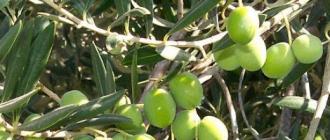N and NN in all parts of speech
On our website you can.1956 rules:
§ 61 Double n is written in the suffixes -enn-, -onn- of adjectives formed from nouns, for example: straw, painful, cranberry, artificial, internal, bucket, peculiar, dining, revolutionary, positional.
Note. In the word windy and in its derivatives one n is written, but in prefix formations it is written -nn- (windless, leeward).
Adjectives with suffix -yan- (-an-), formed from nouns, written with one n, for example: hair, wood, clay, leather.
Adjectives wooden, tin, glass written with double n.
A suffix is written with one n -in- in adjectives, for example: nightingale, chicken, living room, as well as in the noun hotel.
§ 62. Double n is written in passive past participles, for example: reports read at a ceremonial meeting; a soldier wounded by an enemy bullet; collective farm, organized in 1930; a detachment reinforced by two companies; deputies elected to the Supreme Council.
§ 63. Double n is written in all adjectives formed from passive past participles (or according to their type), if these adjectives have prefixes or end in -ovanny, -evanny(except for chewed and forged), for example: the patient was prescribed enhanced nutrition, a volume of selected works of Pushkin was published, sublime style, inscribed triangle, aged wine, trusted person, temperate climate, refined manners, abstract question, absent-minded student, worn dress, used books, a tear-stained face, a rusty key, a risky step, a spoiled child, an uprooted plot.
But with one n you should write adjectives formed from passive participles of the past tense, if these adjectives do not have a prefix and are not formed from verbs in -ovat, -evat, for example: scientific works, wounded border guards, torn clothes, smoked sausage, boiled milk, dried fish, slaked lime, pickles, soaked apples, boiled potatoes, plain-dyed fabric.
Words desired, sacred, unexpected, unprecedented, unheard of, unexpected and some others, defined in dictionary order, are written with two n.
§ 64. Double n is written in adverbs with -o and in nouns with suffixes with -ik, -its, -ost, formed from adjectives if the latter are written with two n, for example: accidentally, unheard of, excitedly, excitement (excited); confidently, confidence (confident); good manners, pupil, pupil (educated); protégé (installed); captive (captive); birthday boy (birthday); sennik (hay); korennik (indigenous); in-law (inherent).
If the adjective has one n, then the adverbs and nouns formed from it are written with one n, for example: confused, confused, confused (confused); learned, learned (scientist); hemp (hemp); silversmith (silversmith). Also with one n are written the words silver (in the meaning of a coin) and bessrebrenik (unselfish person).
§ 65. Double n written in plural. h. and in feminine and neuter gender units. h. short adjectives, formed from passive participles of the past tense, in full form of which - double n, for example: the groups are disciplined and organized, the girl is well-mannered and smart; they are very absent-minded.
Short passive participles are written with one n, for example: broken, broken, broken, broken, the young man was raised as a Komsomol member; the girl is pampered by her upbringing; we are limited by time; The students are organized into a group.
Clear sign
The rule is quite difficult. We do not recommend studying it on your own. It is better if an experienced teacher explains everything. You can learn how to apply this rule in the courses on our website.Examples
Heat n th bow ( verbal adjective in full form: no prefix, dependent word, -ovannn-, -evann-, formed from ch. carried species).
Zazare nn th bow (participle in full form, there is a prefix).
Heat nn onion in a frying pan (participle in full form, there is a dependent word).
Canned nn th bow (participle in full form, there is a letter combination -ovanne-).
Bow fire n(participle in short form).
Territory limited n and a fence (participle in short form).
These people are immoral and restrictive. nnы (short adjective derived from the participle).
He's more concerned nn o looked at me (adverb from preoccupied).
Society is more concerned n about what is happening (participle in short form).
Silver n th knife ( denominate adjective, suffix -YAN-).
Karti nn y gallery (one letter H is in the root, the other is in the suffix).
Celebration nn th meeting (nominal adjective with the suffix -ENN-).
Everything was very festive nn o (adverb from solemn).
What words need to be remembered (here are exceptions + difficult cases).
One letter N is written in the words:
Forgiveness Sunday, uninvited guest, uninvited guest, living room, gift, hotel, living room, gold-forged, imprisoned father, sworn brother, flighty, finished man, dowry, sophisticated, costumed, smart, young, ruddy, drunk, spicy, mad, red, zealous, pork, chewed, forged, pecked, dumpling, hash brown, toiler, martyr, toiler, martyr, silversmith, unmercenary, Shrovetide, bone-dumpling, powder box, alder, confusion, peat bog, length, truth.
Two letters NN are written in the words:
Glass, tin, wooden, nameless, desired, sacred, slow, unprecedented, unheard of, unexpected, unforeseen, accidental, desperate, cursed, made, arrogant, minted, cutesy, home-grown, given, decided, purchased, government-issued, captured, abandoned, deprived, offended, embarrassed, executed, finished business, defeated, born, pecked, awake, abandoned.
Teacher's comments on the material being studied
| Possible difficulties | Good advice |
| It's hard to remember the exceptions to the rule. | Refer to Appendix 1.2 and fill in the gaps in the words where necessary. |
| Sometimes it can be difficult to understand from which noun a given adjective is formed: moral; mysterious; scarlet; own; natural; spicy; indirect; original; humane; immune, etc. | Most likely, these are adjectives formed from obsolete nouns. You can apply the rule to them in in full(even if their former suffixes no longer stand out from a modern point of view): moral; mysterious; scarlet; own; natural; indirect lawsuit-ONN-th. Special attention pay attention to the words human-N-y and immuN-N-y, which are formed not from nouns, but from the international bases – human- and –immune- using the suffix –n-. |
| What to do with words like old..., were..., purposeful, deep..., true..., remarkable, etc.? They have the suffix -in-. Should they be written with one H? | In such words, the suffix –in- is already included in the basis of the nouns from which these adjectives were formed. It becomes part of the stem of the noun, and it is to it that the adjective suffix -n- is added. Therefore, NN is written in such words. Starin (a) - old-n-th. Bylin (a) - epic -n-th. Virgin (a) - virgin soil. Depth(s) - depth-n-th. Truth (a) - true. Dozen(s) - not a dozen. |
| Sometimes it is unclear which suffix is used in a given adjective: -an- (-yan-) or –enn-. Straw... Clay... Silver. Cutaneous. Windy. | In this case, the suffix should be remembered. Pay attention to the spelling of the following words. Straw. Clay. Silver. Windy day, man (remember also: wind engine). oil (paints). When deciding this issue, also use the following considerations. Words with the suffix –AN- (-YAN-) indicate from which ( silver) or for what ( wood-burning) the item is made. cranberry, fiery, pumpkin, straw. |
| Are there cases when the exceptions forged, chewed and wounded are written using NN? | Exceptions: forged, chewed and wounded can be written with two Hs when they have dependent words or prefixes. A sword forged by a gunsmith (gunsmith is a dependent word). A soldier wounded in the shoulder (in the shoulder is a dependent word). SHACKED HANDS (prefix C-). Wounded finger (PO- prefix). |
| In some cases, it is difficult to understand which type of verb the word is formed from. Decisive (formed from decide? decide?). Abandoned (formed from throw? throw?). This leads to spelling errors. | If you have a choice between perfective and imperfective verbs, choose the perfective verb. Decided - formed from decide (sov.v), written NN. Abandoned - formed from throw (soviet), written NN. |
| How many N are written in words with several roots: raw smoked; quick-frozen and under.? | The presence of two roots in itself is not a condition for double H. Freshly frozen. Raw smoked. In order for two Hs to appear in the suffix of such words, one of the conditions noted in the rule must be triggered. Freshly cut (prefix C- before the root -KOSH-). Quick-frozen (the prefix ZA- before the root -ICE-CREAM-). Distinguish between words like lightly wounded and lightly wounded. In the first case we have before us compound word(medical term), in which there are no conditions for NN, in the second case there is a dependent word that requires writing NN. |
| How many N are written in short participles? The meeting is over...but. The mine is neutralized...on. | In short participles, one letter N is written, regardless of whether they contain prefixes, dependent words, etc. The meeting is over. The mine has been neutralized. |
Н and НН in adjectives formed from nouns
The choice of N or NN in adjectives formed from nouns is determined by which word and with the help of which suffix the adjective was formed.
Rat poison; living room; remarkable nature.
Find out from which noun the word is formed.
| Write NN | |
| If one H is at the base of a noun, and the second H is a suffix of an adjective: - | If you see the suffix -IN-: |
| If you have suffixes -ENN- / -ONN-: foliage(s) - - station(s) - - Exceptions: windy but: without windy under windy | If you have suffixes -AN- / -YAN-: silver) - - leather) - - Remember: glass tin wooden constant nameless |
The rule also applies to short adjectives (road).
Rat poison - rat(s) + .
Living room - guest + .
Remarkable nature - ![]() .
.
N and NN in full verbal adjectives and participles
Dried laundry; crazy speed; sold product.
In full verbal adjectives and participles, NN is written when any of the conditions noted below are present.
Writing conditions NN:
3) the word contains -OVA- / -EVA-:
Exceptions:
4) the word is formed from a perfect verb (question what to do?):
settled matter ( decide- owls V.).
Exception:
Н and НН in short verbal adjectives and short participles
She is modest and well-mannered...a; she was brought up in a boarding school; she is always collected..and organized..and.
She is modest and well-mannered - this is a short verbal adjective.
She was raised in a boarding school - this is a short communion.
She is always collected and organized - these are short verbal adjectives.
Spelling: Spelling -Н- and -НН- in various parts of speech (nouns, adjectives, participles, adverbs).
1. Two letters H written: 1) in adjectives formed using the suffix -n- from nouns with a stem on n(sleep - sleepy); 2) in adjectives formed from nouns using suffixes -onn-, -enn-(station). Exception: windy.
2. One letter N written: 1) in the suffix -in-(goose); 2) in the suffix -en- (-yang-) adjectives formed from nouns (leather). Exceptions: tin, wood, glass.
3. B short adjectives the same number of letters is written n, so much in full. Tumanna (foggy).
4. Two letters N written in suffixes full participles and adjectives formed from verbs: 1) if they have a prefix, except Not-; 2) if they include dependent words; 3) if the word has a suffix -ova-(-Eve-); 4) if the word is formed from an unprefixed perfective verb, except wounded. Dried, galvanized, stripped (from deprived - verb. Sov. v.), measured with a ruler
5. One letter N written in suffixes: 1) short passive participles; 2) prefixless adjectives formed from imperfective verbs, and also without a dependent word (confused answer). Exceptions; slow, desired, sacred, unexpected, unseen, unheard, unexpected.
6. In adverbs on -O (-e) is written the same amount n, how many are in the adjectives from which they are derived. Ordinary (ordinary).
Table “Spelling -Н- and -НН- in various parts of speech”

Lesson summary “Spelling -Н- and -НН- in various parts of speech.”
Participle and adjective. These two parts of speech have so much in common that it is often difficult to distinguish which is which. But error-free spelling depends on the correct definition. This also applies to the rules governing the use of N and NN in adjectives and participles.
Participle: one or two n
A participle is a verb form that contains both verbal and adjective features. When thinking about how many N's to use when writing a participle, keep in mind that there are always two N's in this part of speech.
However, there is a special group - verbal participles. N and NN and the subtleties of their spelling in these parts of speech will be discussed in detail below, but for now we will give examples of the basic rule. In full passive participles with suffixes -nn- and -enn- Two letters N are always written, provided:
- The participle has a prefix, for example: a plowed field, stewed vegetables, fried fish.
- The presence of words dependent on it in the participle: fish dried on the balcony, apples soaked in a barrel, a field plowed in the morning.
- This is a perfect participle: a purchased cloak, a solved equation, a captured warrior.
- The formation of the participle involved a verb with a suffix -ova-(-eva-, -irova-): asphalt road (pave), explored area (explore).
If at least one of these conditions is met, you can safely use two letters N.
One N in adjectives
The situation with adjectives is much more complicated. Here, the spelling of one H or two depends on many factors.

Let's consider cases when one H is needed:
- If the adjective has suffixes -in-, -an-(-yan-). The first, as a rule, refers to an animal (eagle's beak, rooster's tail, swan's fidelity). The second indicates what the item is made of: leather belt, oil paint (oil-based paint, should be distinguished from the word oiled in the meaning soaked in oil - an oily pancake), silver spoon (also should be distinguished from the word silver, with an emphasis on e - meaning y the word “treated with silver”, the word in this meaning has the suffix -en-). This clause has three words that are exceptions: glass, tin, wood.
- In adjectives in the formation of which no part of speech was involved (primitives): blue, young. Such adjectives do not have a suffix.
- Exception word - adjective windy, here you need to write one H, but its derivatives with prefixes will have NN: the weather was calm, we approached from the leeward side. It is also worth distinguishing a word from another lexical meaning: wind (powered by wind) - wind engine, chicken pox.
NN in adjectives
NN should be written for adjectives in the following cases:
- The letters stand at the junction of the root and the suffix: depth - deep; fog - foggy; million - millionth.
- The adjective is formed using suffixes -enn-, -onn-: operational (from operation), station (station), intentional (to intend).
- Ending with -ovanny (-evanny): pampered, painted, organized.
Verbal adjective
There is a whole group of adjectives - verbal ones. It is with their distinction that mistakes are made in the text and the rules N and НН in participles are incorrectly applied. Why? The fact is that they have a very pronounced meaning of action: fried, steamed, boiled. The rule “spelling N and NN in participles” does not apply to them. In verbal forms of an adjective, one N is always used.

Such adjectives have a number of specific features, by which one can easily guess that this is the part of speech that we have in front of us:
- No attachment. Let's compare: painted - painted. The second word has a prefix, so the rule “N and NN in participles” applies to it - NN should be used. But the first one is a verbal adjective that must be written with one N.
- No dependent words. Let's compare: a confused trail is a trail that has been confused with special care. In the first case, we observe a verbal adjective, in which we write one N (there are no dependent words). They exist in the second case - we write, according to the rule “N and NN in participles”, with two N.
Verbal adjective or participle: algorithm
You can determine the spelling of N and NN in adjectives and participles using an algorithm, the main thing of which is to correctly recognize the part of speech. It must be remembered that two Hs are required in a participle, and one in a verbal adjective. Let's look at two examples.

- First: Boiled water is poured into the carafe . First, let’s determine the presence of a prefix: the verb “boil” was used in the formation of the word, and accordingly, the prefix is missing. Next, let's see if there are dependent words. There are none. If these two points do not coincide, then most likely we have a verbal adjective. The only thing left to do is to check what type of verb the word is formed from. Boil (what to do? - imperfect form). This means that the rule “spelling N and NN in participles” does not work here. This name is an adjective - we write one letter N.
- Second: Freshly boiled water is poured into the carafe . We look for the presence of a prefix: boiled, formed from the verb “boil” using a prefix -all-. Although we could stop here, apply the rule “N and НН in participles” and write two N, let’s check further. At the word « boiled" is a dependent word - "recently", which means that we are clearly facing a participle.
So, briefly, the algorithm for using N and NN in participle suffixes comes down to the following: we determine whether the word has prefixes or dependent words. If there is, this is a participle, where NN is written. If there is neither one nor the other, we check the type of the verb that participated in the formation of the word: imperfect - one H, perfect - NN.
Spelling N and NN in short adjectives and participles
Another aspect of the rule regarding the use of N or NN in participles and adjectives is their short forms.

The short form of the adjective answers the questions “what? », “what? » In this form, as many letters N are required as are used in the full form: solemn speech - solemn speech, long path - the path is long, mysterious nature - nature is mysterious or a wounded fighter - a fighter is wounded, windy weather - windy weather, confused rule - confused rule .
In short participles, one N is always used, even if there are two in the full form. For example: lessons learned - lessons learned, newspaper read - newspaper read, poem written - poem written, house built - house built.
In adjectives, one letter N is written in suffixes -IN-, -AN-, -YAN-.
For example: swan(in the suffix -IN - one letter N is written) leather(in the suffix
-AN- one letter N is written) woolen(in the suffix -YANG- one letter N is written).
It is very easy to remember three suffixes in which one letter N is written. Need to know the first letter of the alphabet and the last - A and Z. We add one letter N to them and get suffixes - AN, IN, YAN .
You can learn a rhyme that will help you remember the suffixes of adjectives that are written with one letter N.
For adjectives long ago
Recorded in learned books,
When AN, IN, YAN, then N one
And no more surplus.
Suffix -IN- called “animal”. With the help suffix IN adjectives are formed from animate nouns, denoting animals, insects, birds.
MOUSE IN Y = MOUSE + IN
MOSQUITO IN YY = MOSQUITO + IN
NIGHTINGALE IN YY = NIGHTINGALE + IN
In adjectives MOUSE IN OH,MOSQUITO IN OH, NIGHTINGALE IN YY the “animal” suffix is written - IN - with one letter N.
Suffixes - AN-, -YAN - written in adjectives denoting the material from which the object is made:
SKIN AN SKIN = SKIN + AN
SAND ANІ= SAND + AN
SILVER YANG YY = SILVER + YANG
WOOL YANG OH= WOOL + YANG
GLIN YANG Y = CLAY + YANG
Adjectives SKIN AN OH, SAND AN OH, SILVER YANG YY , WOOL YANG OH, GLIN YANGІY are written with one letter Н, since the suffix in them begins with the letters A, I .
You should remember three adjectives whose suffix begins with the letter Y, but the letters N are written in it not one, but two. These are the exception words: TREE YANN OH, TIN YANN OH, GLASS YANN YY.
The following riddle about WINDOW:
glass surface, wooden frame, pewter handle.
2. Two letters НН in adjective suffixes
Two letters N are written in adjectives whose suffixes begin with the letter O or E. For example, EDITORS UNN OH, TRADITION UNN OH, STRAW ENN OH, CRANK ENN YY.
Remember suffix - ONN- helps with NV UN - United Nations.
It is known that suffix - UNN- - UN fan.
It strives to be as similar to the UN as possible in everything. True, the difference between them is immediately noticeable: the suffix - ONN- two letters H, and his UN idol has two letters O.
Using the suffix - UNN -, in which two letters N are written, adjectives are most often formed foreign language origin. For example, COMMISSION UNN OH, EDITORIAL UNN OH, TRADITION UNN OH, REVOLUTION UNN YY
Two letters N are written in the suffix -ENN-.
Adjectives with the suffix - ENN- most often formed from nouns whose stem ends in several consonants: ARTS ENN OH, CRANK ENN OH, LIFE ENN OH, OGN ENN OH, SICK ENN YY.
There is an exception word in the Russian language, the suffix of which begins with the letter E, but the letters N are written in it not two, but one. This word is WINDY.
WINDY DAY
WINDY YOUTH
The word WINDY contains only one letter N!
However, if the prefix WITHOUT appears in the word WINDY, then according to the rule two letters N are written.
WINDLESS NIGHT (the word has a prefix)
Remember the spelling of words WINDY andWINDLESS The following poem helps.
Windy young man, windy day!
You can easily remember:
I always write only one N!
Windless morning, day or night!
Without applying the rules of knowledge,
Write two N without hesitation!
3. Two letters H at the junction of morphemes
Two letters N are written in adjective names formed using the suffix N from nouns with a stem starting with the letter N.
PLAIN = PLAINS N A+ N
LONG= DURATION N A+ N
TRUE= TRUE N A+ N
OUTSTANDING= DIKOVI N A+ N
PANCAKE = BLI N +N
The following poetic rule helps to write in an adjective double letter N.
Fog one has N,
But if the city became foggy,
Based on N and suffix N,
And it turns out NN,
Remember this case is strange.
4. Something to remember
There are several words in the Russian language that do not have the suffix N and suffer greatly from this. These words are often confused and the double NN is mistakenly written in them.
Remember: in words SINGLE, GREEN, SPICY, RUSH, YOUNG, PORK one letter N is written, which is part of the root.
5. Analyzing examples
Let's determine how many letters N are written in the following adjectives and why.
GUSINY(this word has an “animal” suffix -IN -, in which one letter N is written),
TELEPHONE(this adjective is formed from the noun TELEPHONE, the stem of which ends in the letter N. The suffix N is added. Therefore, we write the word TELEPHONE with two letters N),
STRAW(the suffix of this adjective begins with the letter E, so we write НН),
LINEN(the suffix of this adjective begins with the letter I and denotes the material from which the object is made, so we write one letter N),
WINDY(this is an exception word in which one letter N is written),
INFECTIOUS(the suffix of this adjective begins with the letter O, so we write НН),
GLASS(this is an exception word that is included in the riddle about the window; therefore we write NN).
6. Algorithm for writing N, NN in adjective suffixes
When choosing N, NN for writing in the suffix, you can use the algorithm.
Table 1. Algorithm for writing N, NN in adjective suffixes ()
7. N, NN in short adjectives
It should be remembered that in short names The same number of adjectives are written N as in full ones: traditional is traditional, smart is smart.
References
- Russian language. 6th grade / Baranov M.T. and others - M.: Education, 2008.
- Babaytseva V.V., Chesnokova L.D. Russian language. Theory. 5-9 grades - M.: Bustard, 2008.
- Russian language. 6th grade / Ed. MM. Razumovskaya, P.A. Lekanta. - M.: Bustard, 2010.
- ReferenceTable().
- Presentation ().
- Additional exercise ().
Homework
Task No. 1
Insert the missing letters Н or НН where necessary. Justify your answer.
Yu..y, yu..at, silver..y, aviation..y, long..yy, tin..yy, straight..yy, hurricane..yy, debatable..yy, swan..yy, wind..y, windy..oh, windless..yy, axy..yy, morning..yy, morning..ik, glassy..yy, toiler..yy, silver..yy, silver..ka, silverless..ik, family..oh, ice..oh, cranberry..oh, hemp..y, hemp..ik, sparrow..y, nightingale..oh, stirrup..oh, family..oh, Red Banner..yy, solemn..yy, vital..yy, old..yy, guest..aya, guest..itsa, butter..yy, butter..itsa, wind..itsa, va..aya, ple..y, whole..y, drunk..yy, zealous..yy, ruddy..yy, ruddy..yy, fiery..yy, sandy..yy, craft..yy, secondary..yy, retired..y, clay..yy, beastly..yy, offspring..yy, precious..yy, bully..yy, flat-headed..yy, half-dead..yy, wild..yy, not strong..yy, sheep..y, infectious..y, sympathetic..yy, seven-lined..yy, countless..yy, friendly..yy, oaty..yy, simultaneous..yy, ants..yy, car..yy, mouse..y, pig..oh, pig..a, firewood..ik, oil..ik, mal..ik, os..ik, ripple..ik, friend..ik, moshe..ik, windy..ik, side..ik, smart..y, ko..itsa, lee..yy, sandy..ik, travel..ik, vlasya..itsa, vish..ik, weathered..yy, kure..oh (ataman).
Task No. 2
Make the “silent” table speak: write down the necessary words in place of the gaps. Write out adjectives with the studied spelling from the poems.
1. He slept, all shining, in an oak manger,
Like a ray of moonlight in the hollow of a hollow.
They replaced him with a sheep's skin
Donkey lips and nostrils of an ox.
B. Pasternak
2. And the birch tree stands in so... silence,
And snowflakes burn in golden fire.
S. Yesenin
3. Do you love ice...oh January,
No wind, brutal cold.
And I am fierce February,
Blizzard, defiant drifting snow.






